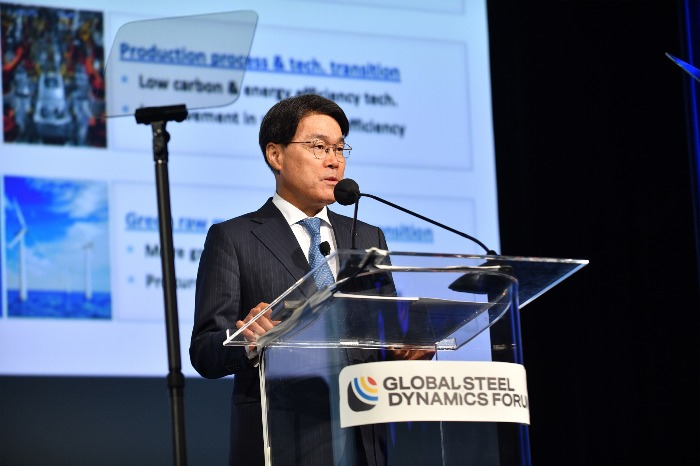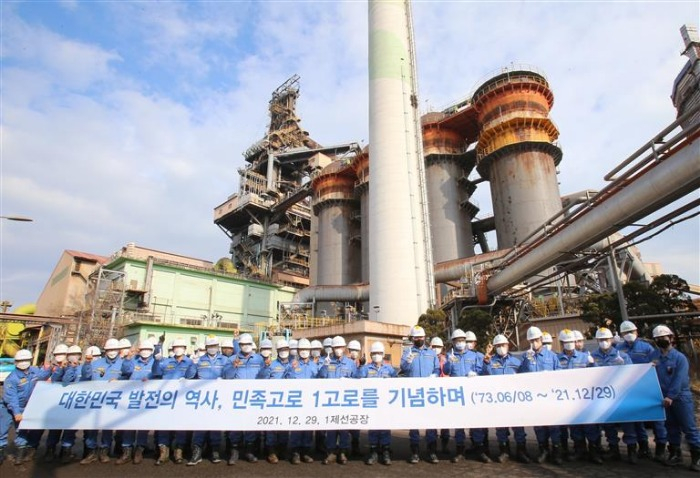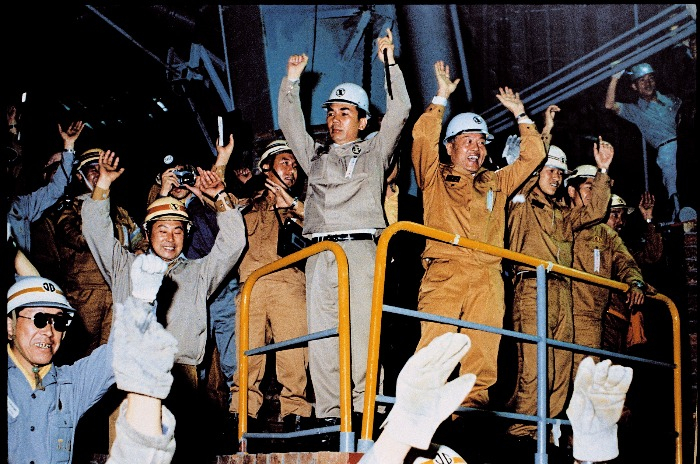Steel
POSCO to spend $92 bn by 2030 to boost eco-friendly business
More than 60% of the spending will go to domestic facilities
By Jul 03, 2023 (Gmt+09:00)
2
Min read
Most Read
MBK’s Korea Zinc takeover attempt to spur search for white knights


Korea Zinc, MBK face proxy war for zinc smelter


Korea Zinc shares skyrocket after buybacks in tender offer


Lotte to liquidate rubber JV in Malaysia, sell overseas assets for $1 bn


Samsung to unveil 400-layer bonding vertical NAND for AI servers by 2026



POSCO is a symbol of South Korea’s economic modernization. Five decades ago, it emerged from the nation's agriculture-based economy as one of the world’s few steel manufacturers, laying the foundation for South Korea’s’ advance into the shipbuilding, automobile and machinery industries.
Marking the 50th anniversary of POSCO’s first blast furnace operations on Monday, Group Chairman Choi Jeong-woo said the steel giant is working to transform into a comprehensive eco-friendly business group, spanning carbon-neutral steel, rechargeable battery materials and hydrogen.
To do so, it will spend 121 trillion won ($92 billion) by 2030.
More than 60% of the spending, or about 73 trillion won, will be put into domestic facilities mostly at its main production complexes in both Pohang, North Gyengsang Province and Gwangyang, South Jeolla Province.

“The first Pohang blast furnace was a turning point for the South Korean economy,” Choi said in a 50th anniversary ceremony speech at the company's headquarters in the city of Pohang, about 260 km south of Seoul
“As POSCO embraced challenges to drive South Korea’s economic growth with the steel business over the past 50 years, so we will be a global business leader … through growth centered on core businesses such as steel, secondary battery materials and hydrogen.”

POSCO projects the 73 trillion won spending will generate about 121 trillion won worth of production and create some 330,000 jobs at home.
The steel giant has been aggressive in investing in secondary battery materials, led by the holding company POSCO Holdings Inc. and POSCO Future M Co., the group’s battery materials unit.
By 2050, it will have transformed its blast furnaces running on fossil fuels into hydrogen-based production lines, or fluidized bed reduction reactors (HyREX).
The process is expected to create the demand of 5 million tons of hydrogen annually within the group.
Supported by the internal demand, POSCO is aiming to produce 7 million tons of hydrogen by 2050, making it one of the world’s largest hydrogen producers.
Back on July 3, 1973, POSCO built its iron and steel making integrated system with a modernized blast furnace for the first time in the country. That first furnace has been shut down since 2021.
Write to Jae-Fu Kim at hu@hankyung.com
Yeonhee Kim edited this article
More to Read
-
 Carbon neutralityPOSCO Int'l to cut carbon emissions 37% by 2030
Carbon neutralityPOSCO Int'l to cut carbon emissions 37% by 2030Jul 03, 2023 (Gmt+09:00)
1 Min read -
 Hydrogen economyPOSCO-led consortium signs 47-yr Oman green hydrogen project
Hydrogen economyPOSCO-led consortium signs 47-yr Oman green hydrogen projectJun 22, 2023 (Gmt+09:00)
2 Min read -

Comment 0
LOG IN


